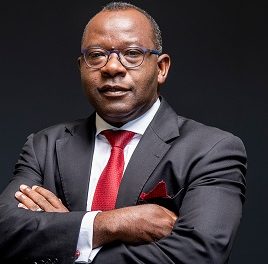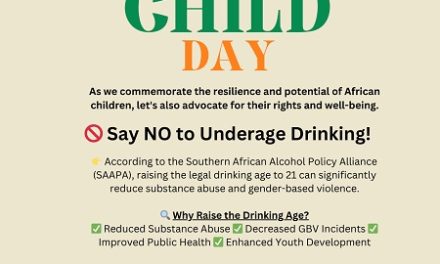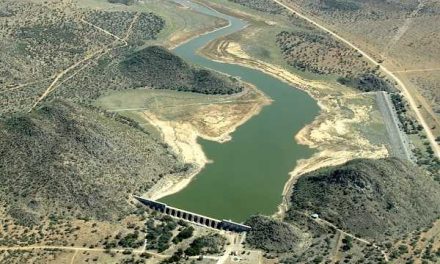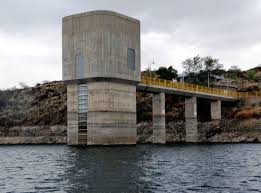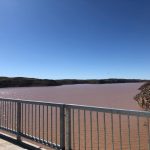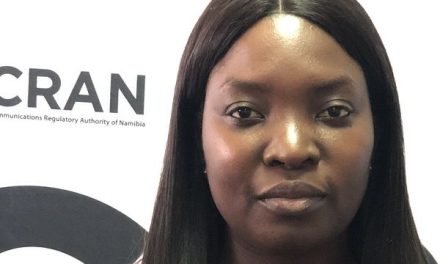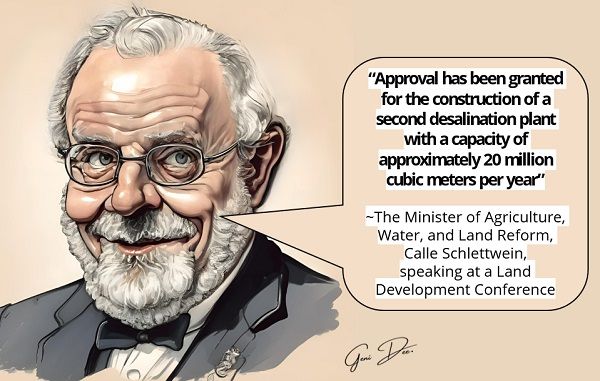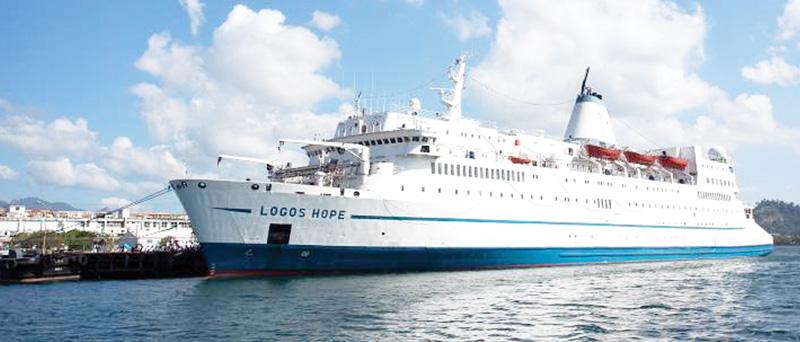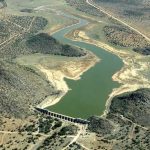
Local entity Kelp Blue promotes sustainable seaweed cultivation for a greener ocean

In the coastal town of Lüderitz, a remarkable initiative is taking shape to harness the ocean’s potential for a more sustainable world.
At the helm of this endeavor is Kelp Blue, a local entity with global ambitions. Kelp Blue’s sustainability and environmental stewardship achievements, including the prestigious Zayed Sustainability Prize for Climate Action, have garnered international recognition.
The company cultivates giant kelp (a type of seaweed) offshore at a large scale, to sequester carbon (the process of capturing and storing atmospheric carbon dioxide), boost ocean biodiversity and restore fisheries, and produce profitable products from the kelp canopy, agricultural inputs, nutraceuticals, plastic replacements, and more.
The story of Kelp Blue is one of passion and purpose, rooted in a profound belief in nature’s ability to address pressing environmental challenges.
Fabian Shaanika, Managing Director of Kelp Blue, shared insights into the company’s mission and vision for a brighter future in an interview.
“Our journey began with a simple yet powerful idea: to harness the ocean’s resources in a way that benefits both people and the planet,” Shaanika explained, adding that they saw kelp as a remarkable opportunity to not only combat climate change but also drive economic growth in coastal communities.
According to Shaanika, they harvest the kelp canopy to produce biostimulants (used to promote the growth of crop plants) and kelp leather.
“The biostimulant is a kelp extract that improves soil and crop yields when applied to agricultural lands. Kelp is full of compounds that when transferred onto crops and plants, help the entire soil-plant system, to improve fruit quality, root system, and the overall physiological quality of the plant,” he said.
Shaanika explained that this reduces the need for chemical fertilizers and pesticides that are often high in cost and are very polluting to the environment, as the production of synthetic fertilizers causes significant emissions. At the same time, the leeching of these substances into the soil worsens the overall soil health in the long run.
 [Farmers interested in trying StimBlue+, Kelp Blue’s seaweed biostimulant. Photograph by Kelp Blue].
[Farmers interested in trying StimBlue+, Kelp Blue’s seaweed biostimulant. Photograph by Kelp Blue].
“With the rest of the byproduct from our biostimulant production, we produce beautiful kelp leather as a sustainable alternative to animal/polyurethane leather among many other things that our Research and Product Development team are busy with,” he added.
Driven by a commitment to redefining traditional business models, Kelp Blue has embarked on a journey of innovation and purpose.
“Our goal goes beyond mere profit; it’s about creating a legacy of environmental stewardship and community empowerment,” Shaanika emphasized. “By investing in sustainable practices and fostering economic opportunities, we aim to inspire a global shift towards a more resilient future.”
Situated in Luderitz, Kelp Blue benefits from the nutrient-rich waters the Benguela current brings, creating optimal conditions for very fast kelp growth year-round.
Kelp Blue operates under an environmental clearance issued by Namibia’s Ministry of Environment, Forestry, and Tourism in March 2021 and renewed in March 2024, and an aquaculture permit from the Ministry of Fisheries and Marine Resources issued in February 2022.
Notable impacts include job creation, responsible consumption and production, climate action through carbon sequestration, and the promotion of marine biodiversity, all in alignment with several Sustainable Development Goals, said Shaanika.
Embracing diversity and fostering skill development, the company currently employs 92 people and expects to employ over 400 people in Namibia by 2027.
Innovation lies at the heart of Kelp Blue’s endeavors, with ongoing research and development initiatives focused on sustainable product development, stressed Shaanika.
According to Shaanika, the company’s environmental contributions are significant and wide-ranging, with the impressive growth of kelp forests.
The company’s kelp forests have flourished, in line with initial projections, and the project aims to sequester 30,000 tons of carbon annually by 2025.
The kelp forests in Shearwater Bay have witnessed a remarkable increase in marine species, from 135 to nearly 800, enhancing biodiversity and supporting local fish stocks, Shaanika noted.
Beyond its environmental impact, he said the company’s innovative business model sets it apart.
The company embraces a holistic approach to sustainability, focusing on social impact and environmental stewardship alongside financial returns. Initiatives like the Kelp Forest Foundation and the Luderitz Blue School exemplify Kelp Blue’s commitment to nurturing future generations of environmental leaders.
Awards and accolades underscore Kelp Blue’s success on the global stage. The recipient of the Zayed Sustainability Prize and a contender for the Carbon Removal XPRIZE, the company’s achievements serve as a testament to its unwavering commitment to sustainability.
“Receiving the Zayed Sustainability Prize is a fantastic recognition of the impact we are already having and of what we intend to have. Our impact on climate will also continue to impact the communities where we operate. This award has given us the confidence to scale even faster,” he said.
Shaanika mentioned several challenges, but the biggest challenge was establishing a new industry.
“One must note that what we are doing did not exist in Namibia four years ago. Our products were never made in Namibia, so you can imagine how much work must be done to align the associated legislative aspects. The rest of the challenges are mostly in our control and simply find innovative ways to solve them, fast,” he said.
Meanwhile, the company’s significant investments, totaling over N$160 million since starting operations in February 2022, have benefited local communities.
Looking ahead, Shaanika expects to bring in billions of Namibia dollars in foreign investment within the next five years, contributing substantially to the country’s economy.
Soon available on the market, blends easily with current crop management programmes. (Photograph by Kelp Blue)










